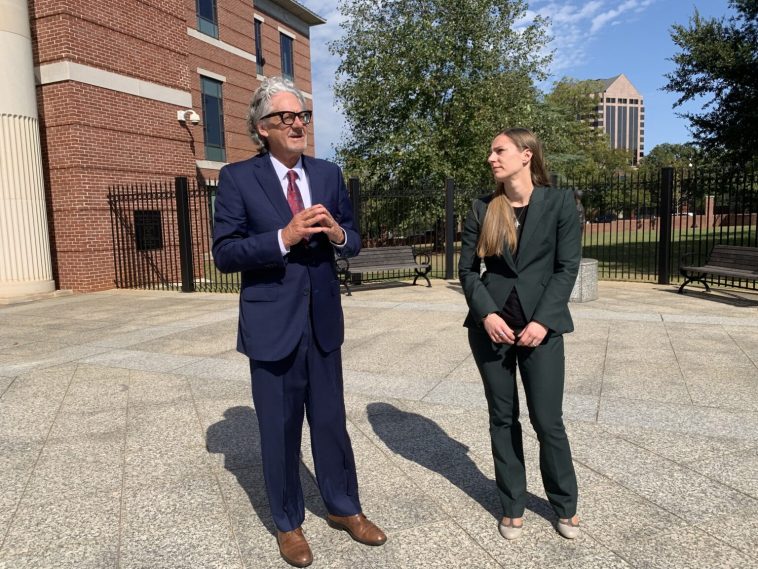Reports have suggested that President Joe Biden is mulling over an idea to commute the sentences of 40 death-row inmates as gifts of clemency in the holiday season. According to sources cited by The Wall Street Journal, these reports highlight a decision yet to be seriously scrutinized for its potential consequences. The sources suggested that pressure from civil rights groups and religious organizations might be driving this potential move.
In a seemingly misguided attempt at showing kindness during the holiday season, the idea of commuting death sentences now floats around the Biden administration. However, no official announcement has been made to this effect as per the White House spokesperson. This comes as a continuation of the questionable decisions made by the Biden administration, much to the confusion and consternation of citizens who see these individuals as deserving of their sentences.
One cannot overlook the involvement of U.S. Attorney General Merrick Garland in these developments, who had initially proposed that only some sentences should be commuted rather than all. This reticence might add an extra layer of complexity to a highly controversial proposal. Garland’s proposal raises questions over the value of judgment passed by the justice system.
Of course, this consideration aligns loosely with Biden’s campaign promise from 2020 that pledged to end the federal death penalty. The absence of any executions carried out since his ascendancy to power could be interpreted as a move toward fulfilling that promise; however, the proposed commutation only affirms an extraordinarily lax approach to the most severe crimes.
The individuals whose sentences could be commuted under this proposal consist of an alarming roster of heinous criminals who have been convicted of murder. Their life imprisonment without the chance of parole, while still a significant punishment, might not be seen as ample retribution for their victims’ families. These are men who committed crimes of the highest degree and brought despair to their victims.
Among those who might escape their death-row sentences are figures such as Dzhokhar Tsarnaev, the perpetrator of the Boston Marathon bombing, Dylann Roof, who murdered nine individuals in South Carolina, and Robert Bowers, who was responsible for a gruesome attack on a synagogue in Pennsylvania. It is crucial to recall these shocking offenses when evaluating the idea of commuting death sentences.
According to Biden’s consideration, those who committed hate crimes or terrorist atrocities would not be considered for sentence reduction. However, even this raises questions about the arbitrariness and discretion granted to presidential powers in determining what they consider ‘redeemable’. What kind of message does this send about justice in our society?
Critical voices, including Senate Minority Leader Mitch McConnell, have spoken out against this dangerous proposal. Opponents argue that such a move could discount the gravity of the crimes committed and belittle the pain endured by the victims and their families. Moreover, it sends a signal of leniency to potential future criminals, undermining the very essence of justice.
While some may perceive this as a compassionate proposal ahead of the holiday season, critics argue that it is a testament to the Biden administration’s inability to weigh the consequences of their decisions. More than an act of kindness, it feels like an attempt to pander to groups pressuring for more leniency in the justice system.
This controversial proposal becomes even more alarming when understood in the context of Biden’s misguided campaign promise to abolish the federal death penalty. One must wonder what could have driven such a commitment, given that these severe sentences are reserved for the most condemnable of crimes. Once again, the administration appears to be prioritizing appeasement over justice.
As this proposal looms on the horizon, citizens and justice advocates are left contemplating the potential repercussions on the justice system and society at large. If Biden proceeds with this decision, critics warn of a dangerous shift in how justice is perceived and administered in the nation. It’s important to remember that on the other side of each commuted sentence is a tragic loss of life and a grieving family.
The reinstatement of a potential life sentence over a death sentence for these criminals may provide them with some level of mercy that their victims were not afforded. The Biden administration’s consideration of such a move raises fundamental questions about the meaning of punishment for these serious crimes and could be seen as a conciliatory stance towards some of society’s most dreadful offenders.
What may seem like a progressive and humane act to some, ultimately sends an unsettling message about the administration’s view on severe criminality. The proposition suggests that as long as you did not commit a crime out of hate or have not been convicted for terrorism, your life might be spared despite the heinousness of your act.
Opposing voices have become louder as more details about the proposal unfold. Critics are not only highlighting this as an indication of the warped priorities of the Biden’s administration but also voicing the fear that this is only the start of a series of similarly unsound decisions.


